Emily Hurd - Interview
by Harry Sherriff
published: 6 / 11 / 2013
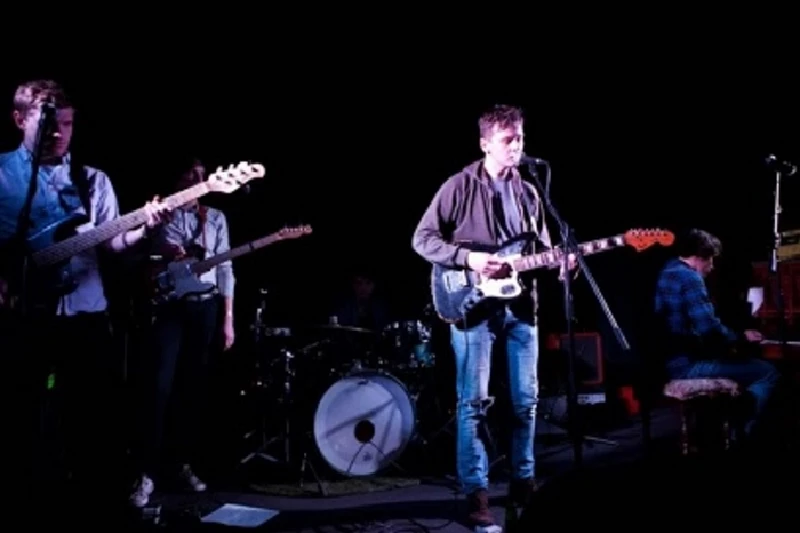
intro
Harry Sherriff talks to former Coral guitarist and Liverpool-based singer-songwriter and composer Bill Ryder-Jones about his musical career, recovery from agoraphobia and touring with the Arctic Monkeys
Bill Ryder-Jones is in it for the years, not the days. Since leaving the Coral in 2008 the gifted musician has scored films, produced other artists and written and recorded two albums. 2011’s ‘If…’, written as a soundtrack for the Italo Calvino novel ‘If On A Winter’s Night…’ showed his love and skill for classical compositions, but it is this year’s universally critically acclaimed ‘A Bad Wind Blows in My Heart’ that exemplifies what an incredible talent Ryder-Jones has. At the same time, at 30 years of age, he feels like he’s only just getting into his musical stride. The night before I interviewed him he’d played a sold out Echo Arena in his native Liverpool with the Arctic Monkeys. A few days previously I had seen Bill in his element, supporting one of his songwriting heroes, Euros Childs, at hip venue Leaf. Bill and I met at the should be famous Soul Café on Bold Street. Bill had a full English breakfast and an orange juice. I felt it rude to eat and ask questions at the same time, so I just had an orange juice. I then felt rude for making him eat on his own. PB: Do you think of yourself as a composer or as a songwriter? BRJ: I don’t know anyone who writes music who thinks in those terms in all honesty. I just write every day. I listen to a lot of classical music, and I listen to a lot of what you’d call traditional songs. If I do see myself as anything it’s as a musician. PB: I guess after the last album it would be quite pretentious to call yourself a composer. BRJ: Yeah, well I’m quite pretentious anyway (Laughs). It’s just something you don’t say. If anyone ever asks what I do, I just say I write music. PB: Do ideas that you originally thought were going to be songs end up as soundtrack pieces and vice versa? Is it hard to differentiate between the two or do you see them as separate things? BRJ: I see them as separate. Most of the time I’m always writing for a project. So, there’s a different mind set. I’ve definitely had songs that I didn’t think were going to go anywhere, so I’ve used them as instrumentals. It doesn’t really work the other way round for me. I don’t really write a soundtrack unless there’s a project I’m working on. At the moment I’m spending my time writing songs because I think the next record is going to be another ‘song’ record. I never thought it before, but I’m probably better at writing songs than I am at doing the scores. PB: What percentage of ‘If…’ was a passion project versus showing what you could do as a composer? BRJ: I think they can be the same things. I don’t see them as mutually exclusive. It was primarily meant to be a calling card. We weren’t even going to release it until Laurence Bell at Domino said, “This is really good.” It was a real labour of love and it was a passion project. 50-50 probably. PB: Was it hard to do a soundtrack for ‘If…?’ When did you first read the book? BRJ: I first read it in 2005. My girlfriend at the time was a big Calvino fan, and we’d moved to Italy after I’d left the band. I got really caught up in it. The appeal was the concept behind the novel. I’d always been aware of the basic concept of the novel, but I’d never been able to put it into words. Calvino talks about the first few pages of a book that you really love, and at that point once it’s got you, because you’re at the start, it’s got the potential to be the most perfect piece of art for you. You cast your own fantasies on what it might become and all that promise and expectation, but obviously a novel’s got to have a definitive end, and the further along a writer gets into a novel they have to start tidying things up, and so you’re always going to be slightly let down. It’s exactly like people. You want your perfect mate, but you get further down the line and you realise what you want is quite unattainable. What he’s trying to do is elongate that period of influence and promise through a whole novel. It reminded me of those songs you get obsessed with, but then you over listen until there’s no magic to it, or you learn how to play it on the guitar and you realise it’s not that perfect thing but it’s just clever. It was difficult because I’d done little bits of string arrangement, but I’d never done anything for a full orchestra so it involved a lot of writing. Most the time I’m making a record I’ll get quite manic about it. The passage of time between ‘If…’ and ‘Bad Wind’ they were particularly hectic times for me personally, and it’s not until afterwards you think, “Fucking hell. That probably wasn’t that healthy to be like that.” At the time you don’t realise. You’re just on the high of getting it done, and then afterwards you have a bit of a come down. Making records isn’t difficult. It can be mentally tiring, but it’s not like getting up at seven and working in a factory. PB: Why was ‘Piggy’, your recent soundtrack album, released free on Bandcamp? Were Domino not interested in a release? BRJ: Not at all. Domino got me the job. We weren’t going to release it. I like the soundtrack, but it isn’t something I wanted an official release for. If the film people had decided to do something with it, then I’d have said fine. The Bandcamp thing was for charity; my ex-girlfriend was doing this charity thing for Trekstock. She’d taken on this big thing. It was a good cause and it got her a couple of quid. The music was sitting there doing nothing and it might as well do something. PB: Did you have to ask the filmmaker’s permission to do that? BRJ: I don’t know (Laughs). If they want to kick off then they can. PB: So you didn’t ask? (Laughs) BRJ: I very rarely ask for anything. (Laughs) I got on really well with the makers of ‘Piggy’, so I didn’t see that as being a problem. PB: How did that collaboration come about? BRJ: Kieran Hawkes, the guy who wrote and directed the film, was into ‘If…’. The music supervisor, a woman called Vicky Williams, knows a woman at Domino and they said, “What about Bill?” Then they sent me the script, which I thought was amazing. I went to a couple days of shooting, and they sent me some roughs and I wrote to them. PB: Even whilst you’re touring an album such as ‘Bad Wind’ are you still open to soundtrack work? BRJ: Yeah. That’s half of what my job is. I got an email yesterday about one that I need to reply to. They fix me up with writing with other people as well which is fun, but I haven’t done that in a while because I’ve been producing and other stuff. PB: Justin Young, the front man with the Vaccines, recently took criticism for writing songs with One Direction. He replied, “People who don’t understand why I would want to write with One Direction are old fashioned, small minded and tribal.” Would you write songs for someone who had just won ‘The X-Factor’? PB: No. Domino don’t even suggest shit like that. They wouldn’t be interested in that anyway. I like pop music. I wouldn’t mind working with a good pop artist, but not some spotty prick off the telly. I think that’s a cop out from him as well. What he means if he was being honest about it is that, “It’s hard to make money so I took this job.” Everyone takes money jobs. I took that Converse job. No one’s the perfect artist. Everyone has times where they go, “Fuck, I’m skint. I need money. I’m going to have to do this”. PB: So the Converse thing wasn’t cool? Wasn’t it with Graham Coxon? BRJ: And Paloma Faith. Yeah it was terrible, dreadful. PB: So, it wasn’t even fun making it? BRJ: Oh, it was fun making it. Paloma’s really funny. Graham’s been a hero of mine since I was a little kid. PB: But the actual work? BRJ: Yeah. I don’t pretend now it was anything other than someone offered me £15,000 for three days work and I had no grand. I’d just left the Coral and I had fuck all. I wish it hadn’t happened. My mum works all the hours she can, a fucking crazy amount of hours, and makes about £30 a day, something ridiculous. And she’s like, “Go and take fifteen grand you artistic prick,” (Laughs), and I do agree with that. PB: I don’t think it’ll be one of the most memorable Bill Ryder-Jones things people will recall. BRJ: It’s a nothing thing. I’m not that arsed about it. I just wish I hadn’t done it or didn’t have to do it. PB: I think Justin Young tried to pass it off like writing for One Direction is a challenge. BRJ: Well, I don’t think writing for One Direction is a challenge. I’m pretty sure there are people in this café that could write a fucking hit if it was given to One Direction. PB: So how do the co-writing projects come about? Do Domino only give you artists that they think, “Oh this will be good for Bill”? BRJ: There are certain people I write with. There’s a girl called Minnetonka from Liverpool who I think is really brilliant. Domino have set me up with a couple of people. I have a production manager who gets me my production work. Ultimately it’s down to me. If I like something I’ll respond. If I don’t, I usually don’t reply. PB: Is that something you want to carry on? BRJ: Yeah. Definitely. I’ve just finished producing the first Wytches album. I’ve got another album I’m doing in December with a woman called Saint Saviour, who used to be the front woman in Groove Armada. She’s doing these piano songs like Beth Gibbons, really beautiful sad songs. PB: It seems like you’ve got a lot of things going on. That’s what I want. Over the last two years I really made four records. I released two. ‘Piggy’ is about 24 songs. It’s a big record. Sometimes you run out of songs. PB: Is any of it tricky? With that lifestyle? On Thursday you were playing a small venue with people who have come purely to talk, and then last night you’re playing the Echo Arena with one of the biggest bands on the planet? BRJ: It’s alright really. I have quite a routine. If I’m at home, I wake up about eight or nine. Check out the news. Then I walk to my mum’s because that’s where I do all my writing. Have a cigarette, a coffee and get some fruit. Write for a bit. Go home for about two. Play computer games. Read. Play guitar. Watch ‘The X-Files’. Go to bed. That’s a typical day. You take that when you can because most the time I’m on a train to London, in a studio or out on tour. But it’s great, I’m the happiest I’ve ever been really. PB: You seem very productive? BRJ: That’s because I have a great company behind me, and I feel indebted to them. I want to work. Plus I want to be comfortable in life as well. I don’t have any money or savings, any of that. I’m still living in a rented gaff, and I’m thirty years old. Also I’m proud of the things I’ve done. Putting them two albums out wasn’t easy. Another thing I’m really proud of is I finally feel I’m getting out of ten years of intense anxiety and different phobias and all kinds of weird shit. That’s something I really want to promote a little bit. I’ve been open about it in a few interviews, and the response you get is amazing. I know I don’t have the biggest fan base, but a lot of people are drawn to the way I sing because there is a connection there and people do benefit from hearing someone who’s been up and down. The fact is I’m playing to 10,000 people with the Arctic Monkeys and even one year ago doing my own gig was… well, Domino didn’t even ask because they knew it wasn’t going to happen. It was only a year ago that I couldn’t get a train from Liverpool to West Kirkby on my own without someone being there because the agoraphobia was that bad. That’s something I’m interested in promoting, and I’m happy to be seen as a bit of an ambassador for. I think that helps people with mental health problems. You’ve got to believe you can get through it. PB: I remember you were meant to play last year and pulled out? BRJ: Yeah, that was the GIT Awards. PB: And then there is an obvious difference between your gigs at The Arts Club where I saw you playing one of your first solo gigs last year to last week’s gig at Leaf supporting Euros Childs. Both were entertaining in different ways, but there was a confidence in the latter gig. BRJ: I’m quite confident on stage now. That Arts Club gig was probably the fifth or sixth gig we did. Those first few gigs were horrible. I was trembling, and my voice wouldn’t settle. I found a way to beat it by just being a bit silly. The album is meant to be positive and I found people connecting to me… people can tell when you’re nervous and you’re shitting yourself and I didn’t want people to connect with me on that level like, “Shit , is he okay?”. Then one day I just decided to dick about. I didn’t want people to think it was something it’s not meant to be. Music is meant to be a fun thing, and after that Arts Club gig I was just like, “I fucking hate doing this. I don’t want to do this anymore” (Laughs). I must have made a joke one night and I thought, “That helps!” PB: How does the Arctic Monkeys tour coming along affect the tour for the last album? Is that tour perpetually ongoing? BRJ: We haven’t actually toured. We go away for three or four days at a time mainly, because we can’t afford to do that. We don’t play to enough people. PB: So were you surprised you were asked to do the tour with the Monkeys? BRJ: No, because I’d played on the ‘AM’ album, and I’d already done a gig in London with them, and they asked me to jump on the bus to do some TV in France, and so I did that as well. Al (Alex Turner-Ed) and I talked about it as well, a little bit. I sort of threw my hat in. PB: A couple of people on Twitter last night referred to the Arctic Monkeys gig at the Echo as the Bill Ryder-Jones show. It feels like you were onstage most of the night? BRJ: I don’t know. Maybe, six or seven songs, I think. It’ll get more than that as well. The ones I want to be on they don’t need me for. I want to do ‘Arabella’ and ‘Do I Wanna Know’. PB: So, was it a surprise when you got a call for the album? Or is it never a surprise? BRJ: I don’t want to sound like an arsehole. It was a pleasant surprise, but I’ve known Alex and the boys for years. I did a soundtrack with him. We’re always in touch, and we’ve spoken about doing various things. So, he just phoned me and said, “We’ve got a track. Do you want to play on it?” and I just said, “Yeah, but I’m not coming to L.A. though,” (Laughs), but he said, “We’re not offering to fly you out to L.A. for one guitar part.” Sometimes it can be hard because it’s Arctic Monkeys, one of the biggest bands on the planet, but that’s also the world I’ve known since I was sixteen anyway. The magic of being in a big band goes away a bit. Just being in the business I know some ‘big’ stars. PB: But it’s normal to you? BRJ: It’s never normal. It’s sound, and then you get flashes of “This is fucking odd.” Most of the time with these lads it’s farting on a bus and telling crude jokes. I guess it was a bit of a surprise, but it wasn’t like Paul McCartney ringing me up. There was a thread to it happening. PB: Is it weird to think the Arctic Monkeys supported the Coral, and that other acts that were small then are suddenly also playing the biggest venues? BRJ: We must have been the best band to support because most bands that supported us went on to be massive. Especially when we were (indicates a decline). We took Kings of Leon with us on a tour of America. The Courteeners supported us, as did the Libertines before they were huge. PB: Do you think most people realise the influence of the Coral? BRJ: I’m not sure. We were a band that filled a hole in time. Things were dull, and we were very not dull. It made us seem better than we were. I think we were a good band. I think we were a band’s band, but I still think we made some ropey decisions along the way. The songs were always good though. PB: When you’re told you have to do TV appearances in France does that not spark anxiety? Is that always in the back of your mind? BRJ: Having any condition like that, especially for a long time, which I have, you view yourself as an agoraphobe. That’s what you are. It’s like getting off a drug. You’ve always got to see yourself as someone who’s still is involved in that world. PB: Are planes bad? BRJ: I don’t like planes but it is little things, like if I know I’m going to get one, I don’t get drunk the night before. You try also not to smoke too much before the flight. You don’t take any coffee, and make sure you take your pills. You have some water, and make sure you have some music. That’s when things are good, but like I said last year I wasn’t flying anywhere. Nobody tells me what to do anymore. I get told things that would be good for me to do, but anyone who knows me knows there’s no real point. It’s not like I’m rebellious. I just don’t listen. I still think of myself as someone who has spent the last ten years freaking out, being alone and being in small spaces. It’s good in a way though because without that condition… I wouldn’t have got off drugs. I didn’t drink for about six years. It curbs my drinking. I don’t take drugs. In many ways it’s been a positive for cleaning my act. PB: Can we expect TV appearances to promote ‘A Bad Wind Blows in My Heart’? BRJ: That’s got nothing to do with anxiety. That’s more no one wants to put us on (laughs). They approached Jools, but never heard back. There’s definitely no plan not to do them things. PB: You’d be happy to do them? BRJ: I’d be happier not doing them. There are certain aspects of the job you just should do. I listen to Domino on so many things like promotion and direction, just to contradict what I’ve just said but if someone was to call me and say, “We think you should do this TV show,” and gave me a good reason then I’d do it. But I’m not the type of person to be saying I think we should be doing Jools. PB: There are quite a few artists like that now. BRJ: Careerists. If you’re not prepared to do it for free, then you can fuck off. PB: Do you look ahead and plan goals? We’re in November, so do you get planning for 2014? BRJ: All I think about is the next album. I can’t think too far ahead, and I know a lot of people like that because it just freaks you out, doesn’t it? Saint Saviour for December, Minnetonka in January and I can get stuck into my third album around the same time. PB: Have you written anything for that? BRJ: I’ve got some bits. I need a plan for it though. I can write songs throughout the year, but they can be all over the place. Once I know what the album is I can reassess them. I’m going to do it with James Ford, and we’re going to plot it out a bit more. It will be out next year though. PB: Thank you. The photographs that accompany this article were taken by Marie Hazelwood.
Band Links:-
http://www.emilyhurd.com/https://www.facebook.com/emilyhurdfans
https://twitter.com/emilyhurd
https://www.youtube.com/channel/UCRK6FDc1-JGTLKdyD-aGy6Q
https://plus.google.com/+EmilyHurdmusic
Picture Gallery:-
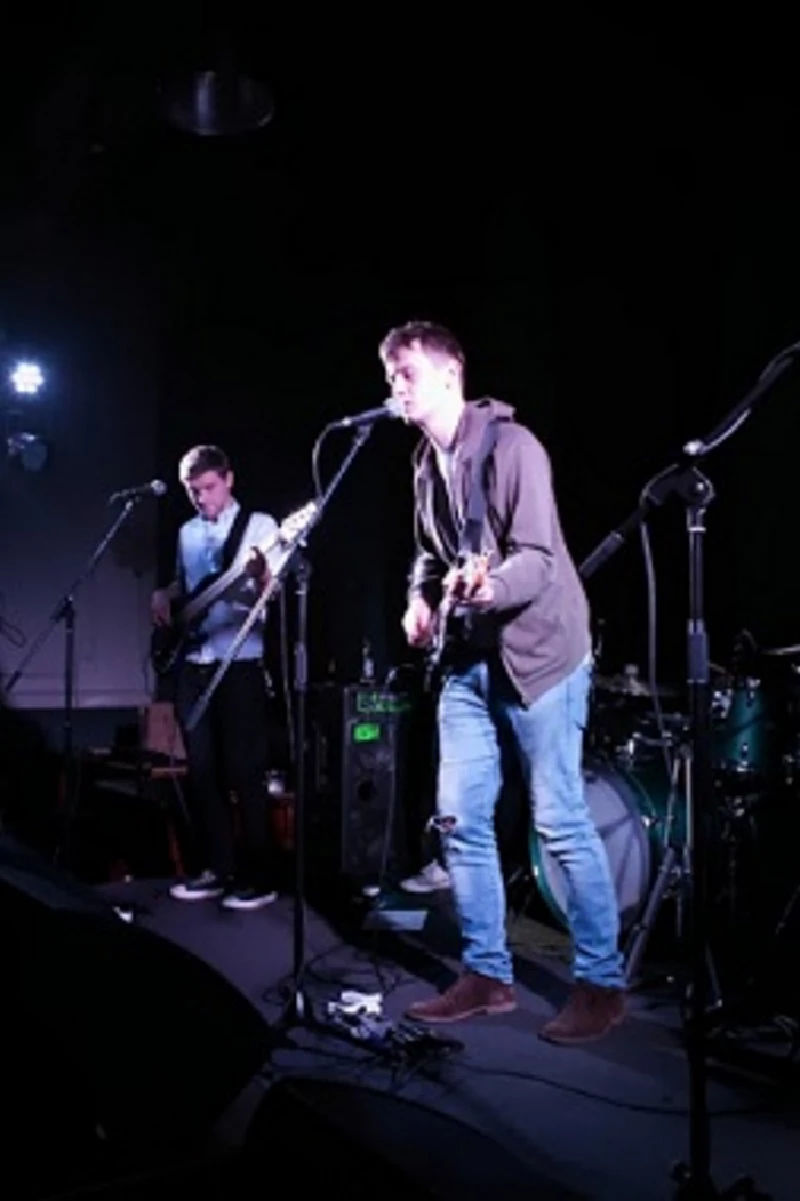
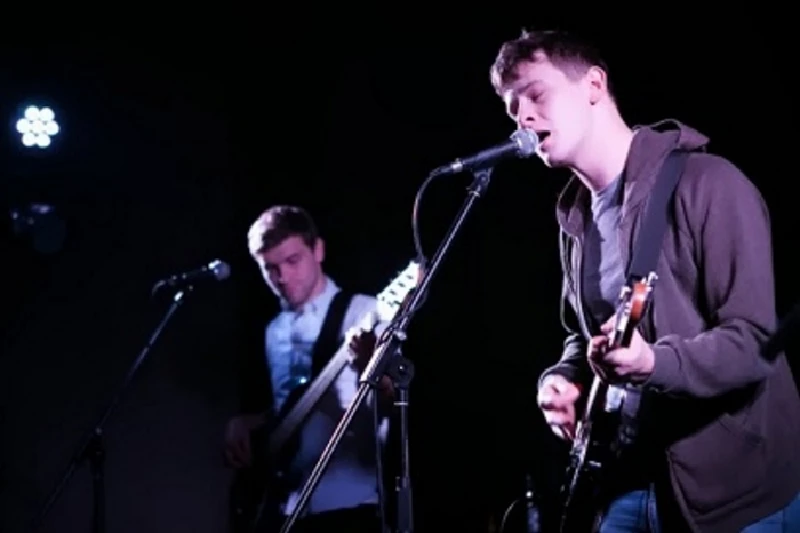
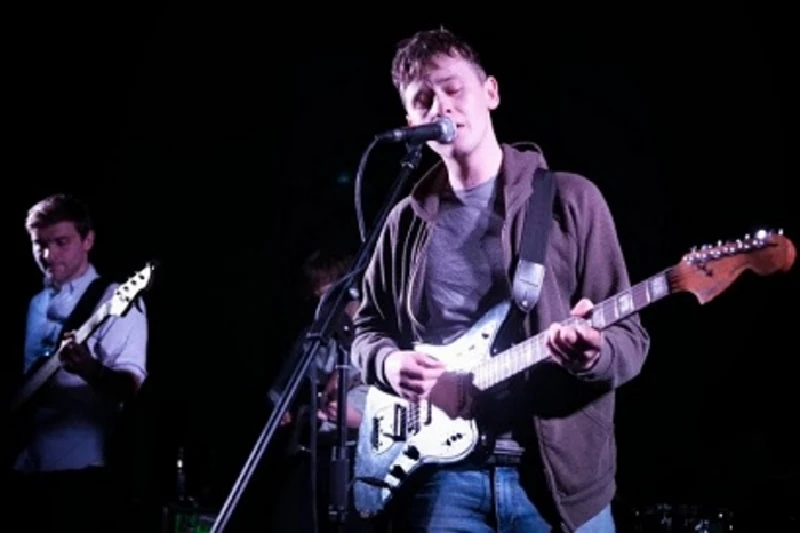
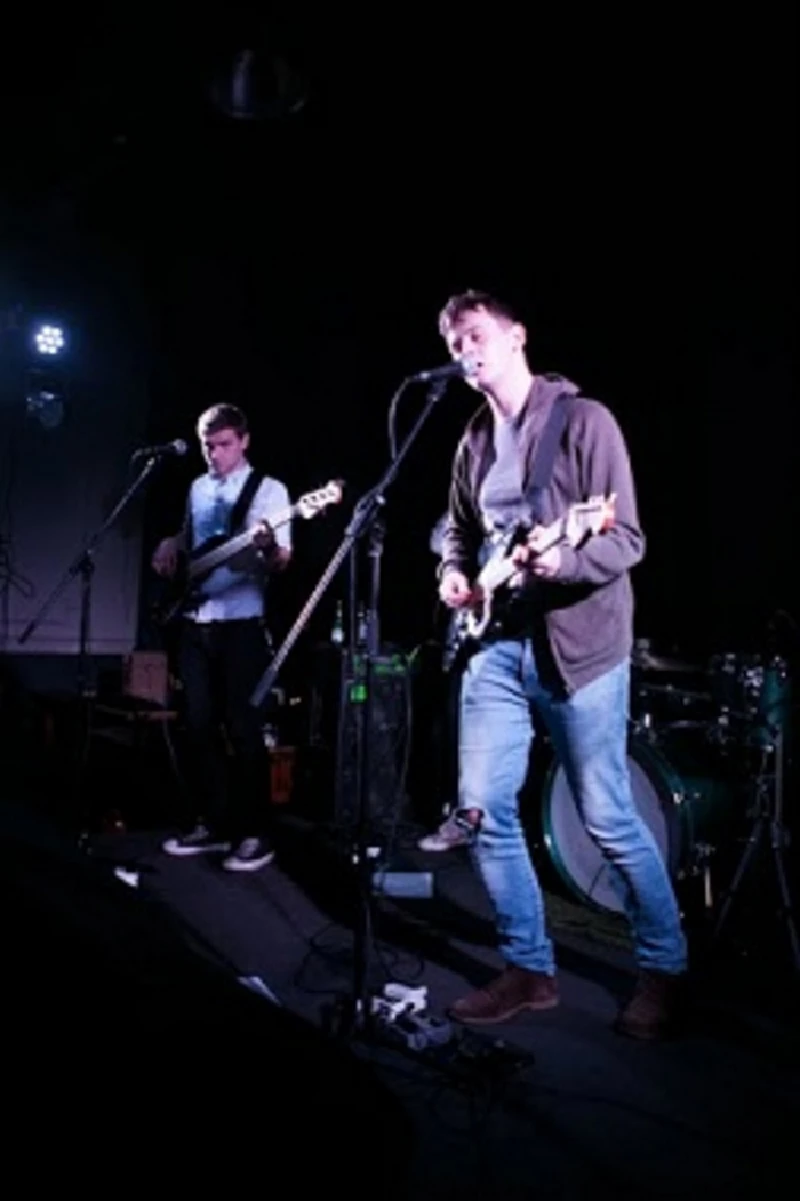
Visitor Comments:- |
| 666 Posted By: Kath maddocks, Merseyside on 25 Nov 2013 |
|
A very in depth interview and I enjoyed the reading the content very informative
|
live reviews |
|
S.P.A.C.E., Evanston, Illinois, 7/2/2013 |

|
| Lisa Torem watches local singer-songwriter Emily Hurd play an enthralling set at the launch show for her new bluegrass-influenced album, 'Burn like a Field' at S.P.A.C.E. in Evanston, Illinois |
soundcloud
reviews |
|
Long Lost Ghosts (2011) |
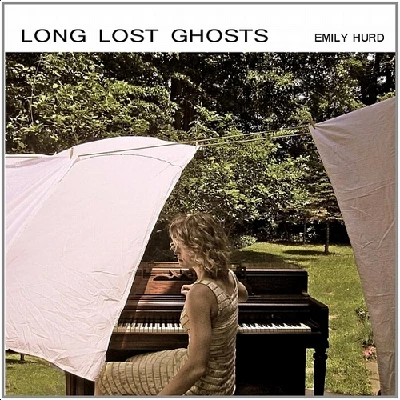
|
| Pastoral eighth album from Chicago-based singer-songwriter and pianist, Emily Hurd |
most viewed articles
current edition
Carl Ewens - David Bowie 1964 to 1982 On Track: Every Album, Every SongColin Blunstone - Thalia Hall, Chicago, 16/7/2025
Visor Fest - Valencia, Spain, 26/9/2025...27/9/2025
Bathers - Photoscapes 2
Bathers - Photoscapes 1
Billie Eilish - O2 Arena, London, 10/7/2025
Editorial - July 2025
Cathode Ray - Interview
John McKay - Interview
Cleo Laine - 1927-2025
previous editions
Heavenly - P.U.N.K. Girl EPTrudie Myerscough-Harris - Interview
Beautiful South - Ten Songs That Made Me Love...
Pixies - Ten Songs That Made Me Love...
Boomtown Rats - Ten Songs That Made Me Love....
Fall - Hex Enduction Hour
Sam Brown - Interview Part 2
Doris Brendel - Interview
Jimmy Nail - Interview
Blues and Gospel Train - Manchester, 7th May 1964
most viewed reviews
current edition
Amy Macdonald - Is This What You've Been Waiting For?Sick Man of Europe - The Sick Man of Europe
Alice Cooper - The Revenge of Alice Cooper
Phew, Erika Kobayashi,, Dieter Moebius - Radium Girls
Lucy Spraggan - Other Sides of the Moon
Blueboy - 2
Cynthia Erivo - I Forgive You
Davey Woodward - Mumbo in the Jumbo
Lapsley - I'm a Hurricane, I'm a Woman In Love
Philip Jeays - Victoria
Pennyblackmusic Regular Contributors
Adrian Janes
Amanda J. Window
Andrew Twambley
Anthony Dhanendran
Benjamin Howarth
Cila Warncke
Daniel Cressey
Darren Aston
Dastardly
Dave Goodwin
Denzil Watson
Dominic B. Simpson
Eoghan Lyng
Fiona Hutchings
Harry Sherriff
Helen Tipping
Jamie Rowland
John Clarkson
Julie Cruickshank
Kimberly Bright
Lisa Torem
Maarten Schiethart